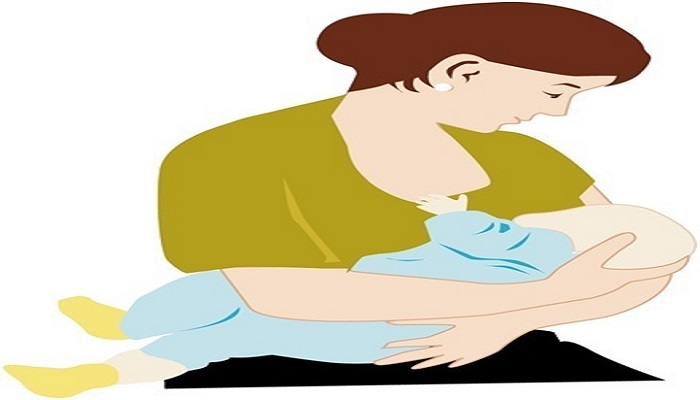
Although breastfeeding gives babies the best start in life and is good for the mom’s health too, there are a lot of myths attached to breastfeeding.
Myth: If babies feed a lot, that means they aren’t getting enough milk
Fact: Because breast milk is so easy to digest, babies generally get hungrier sooner than if they are formula-fed. It’s appropriate for your breastfed new born baby to feed every two to three hours.
Myth: Giving the breast a breastfeeding ‘rest’ can help ensure more milk
Fact: The more you breastfeed, the more milk you make. Breaking your regular breastfeeding schedule to rest the breast actually may reduce your milk supply.
This myth seems to have begun because skipping a feed during the day results in the greater supply of milk at night. But by the next day, you will have less milk if you skip a feed. The only way to ensure a steady supply is to keep feeding or expressing milk as regularly as you can. Experts suggest that you should breastfeed at least 9 to 10 times a day to ensure milk production.
Myth: Formula-fed babies sleep better
Fact: Yes and no- Some research indicates that babies fed on formula do not sleep better, although they may sleep longer. Because bottle milk isn’t digested as quickly, it may be a long stretch between feeds so your baby may sleep longer, according to some experts.
However, there’s a downside. The formula remains in the baby’s system longer, so it begins to ferment, making poo smell more. Breastfed babies typically start sleeping longer at four weeks old and soon are sleeping the same amount of time as bottle-fed babies.
Myth: Breastfed babies shouldn’t take an occasional bottle or they may become confused and stop feeding
Fact: Babies suck on a nipple, but suckle at the breast. The difference between the two actions will rarely confuse your little one, experts say. If you think you need to supplement your baby’s feeds (particularly if you plan to return to work before you finish breastfeeding), then you should introduce your baby to the bottle between two and six weeks of age.
Use the bottle for one or two feeds a day. Your baby will develop the skills necessary to bottle-feed without losing the ability to feed at the breast. Use your own milk when trying the bottle, and hold your baby close to your body to cuddle. It’s the bonding time that matters almost as much as the actual feeding.
Myth: Breastfeeding changes the shape and size of your breast, or reduces sensitivity
Fact: While pregnancy does somewhat alter the look and feel of your breasts, experts say breastfeeding does not cause any changes beyond that. In fact, breastfeeding can actually help protect your breasts. Studies show that women who breastfeed have a reduced risk of breast cancer later in life.
Myth: Never wake a sleeping baby to breastfeed
Fact: Most of the time your baby will wake you — and be ready to eat — every two-and-a-half to three hours. However, your baby may feed vigorously for two or three hours — known as “cluster feedings” — then sleep longer than usual.
If your baby is regularly sleeping through feeding time, wake him when it’s time to feed. It’s important for your baby to feed on time, and you need to express milk on schedule to keep up a good supply.
Myth: Breastfeeding prevents you from getting pregnant
Fact: Judging by the number of families with babies born 10 months apart, it’s clear that breastfeeding is not a guaranteed form of birth control. However, experts believe breastfeeding is 98% effective — similar to other forms of birth control. Experts say that the hormones involved in breastfeeding prevent ovulation, thus hindering your ability to conceive.
As soon as you begin having a menstrual cycle, you can get pregnant again. For some women, this can be as early as six months after giving birth.

Post Your Comments